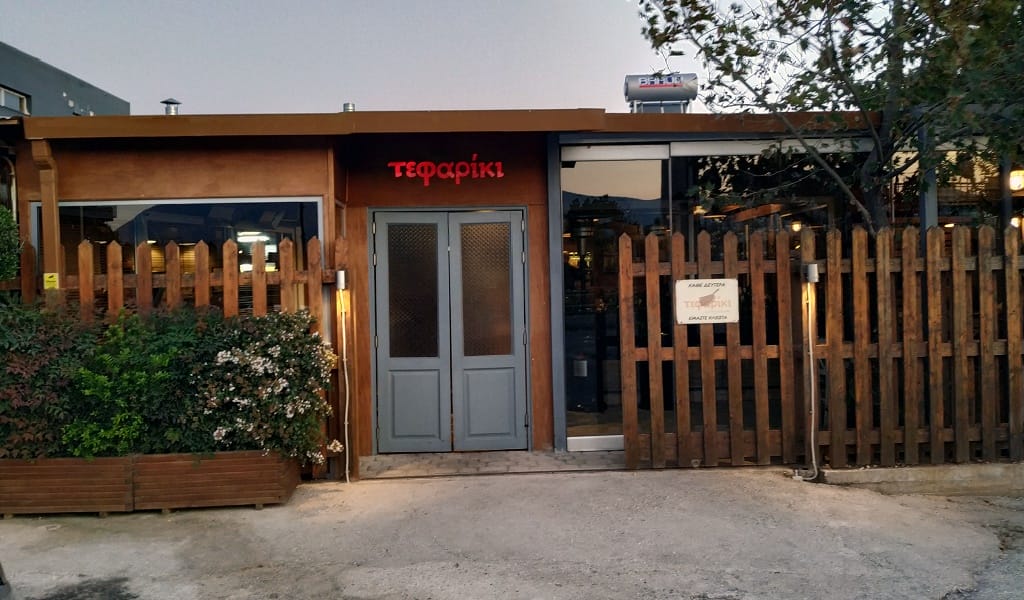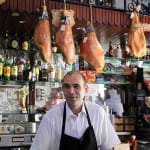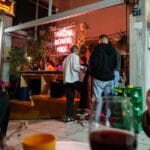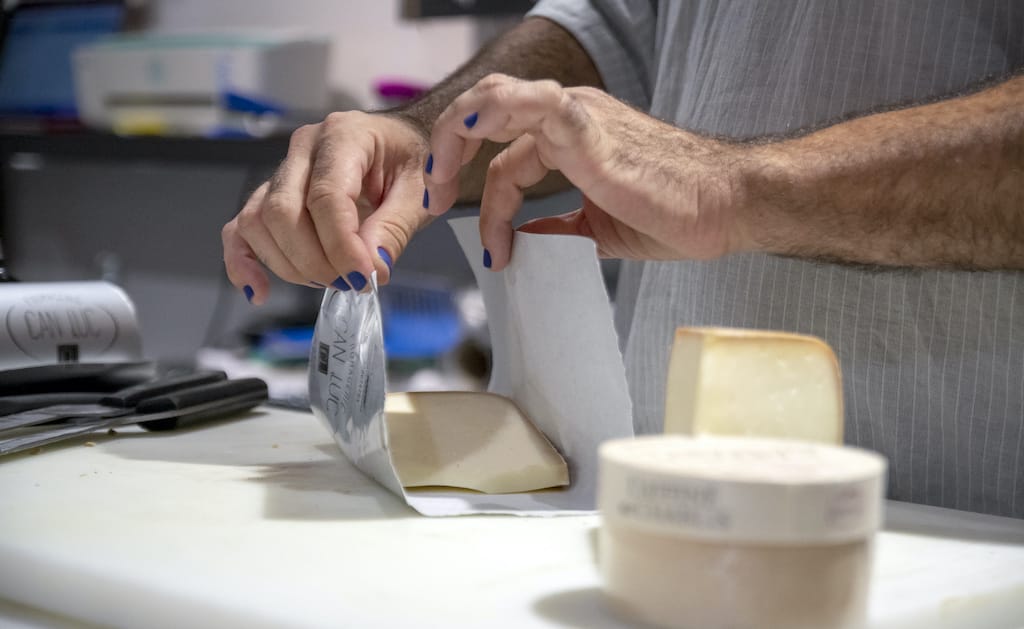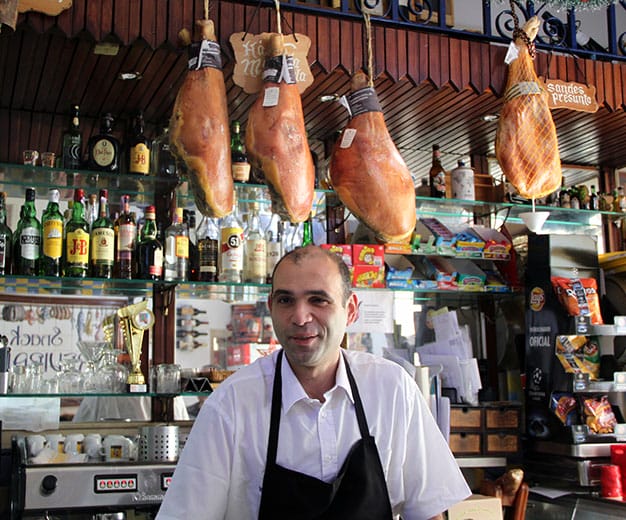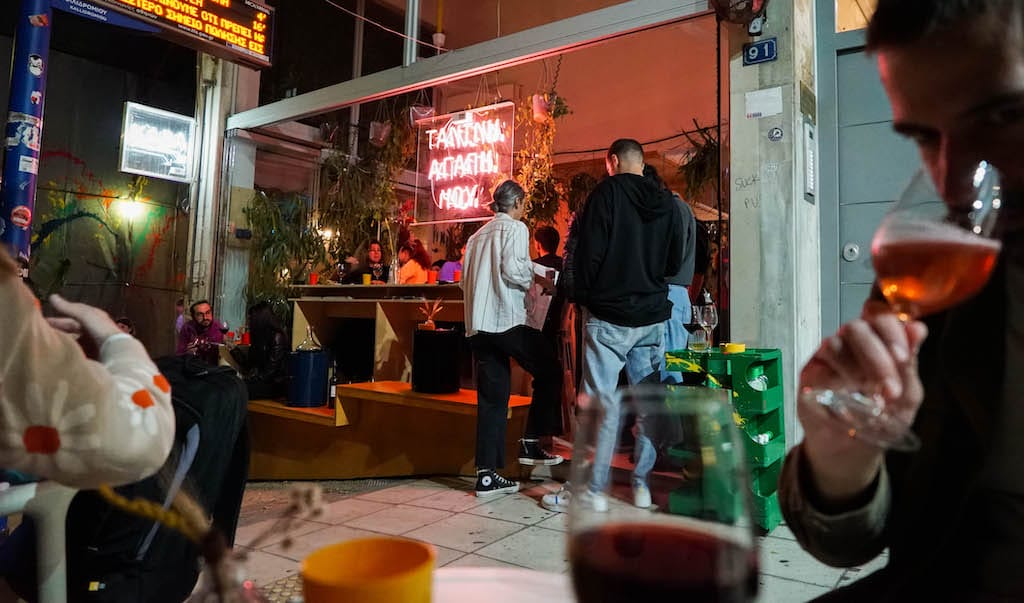Few places conjure more vivid images of delicious, cult meat consumption than Vari, a southern suburb of Athens, particularly the neighborhood of Vlahika.
How, exactly, Vari became a meat-eating paradise goes back to members of the nomadic Sarakatsani tribe, who used to move their herds from the neighboring mountains of Parnitha and Penteli to spend the winter in this area, with its milder clime. In 1917, a few Sarakatsani families decided to make Vari their permanent residence.
Later down the line, in 1962, Christos Goulas opened the first butcher-tavern called Tseligas (the name for a sheep herder) on Varis Koropiou Avenue (now called Eyelpidon, it’s one of the main drags in town). By the 1970s, both sides of the road were full of similar establishments, selling mainly lamb delicacies (grilled chops and kokoretsi, among other dishes). You could (and still can) pick out these butcher-taverns by their trademark touts, men dressed in the traditional nomadic costume of a foustanella skirt, tsarouchia shoes and a shepherd’s crook.
In 2013, a few kilometers north of this stretch, just off the bleak highway connecting Vari to Koropi, Lambros Dinos saw an opportunity he could not pass up: a derelict shack of a canteen that was being rented for very little money. He immediately thought it was a tephariki, a Turkish slang word used in Greek to mean a real winner, although it’s often used ironically. And so Tephariki was born.
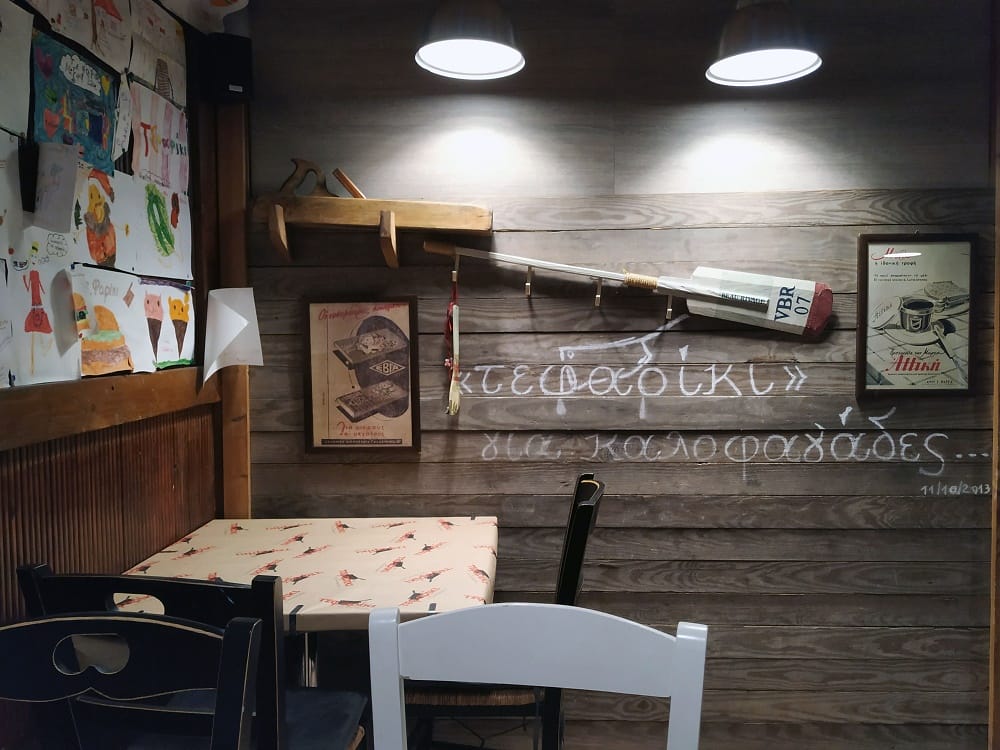
Lambros used to own a trucking company but it went bust when the 2010 financial crisis started, as it was closely linked to the construction industry. “I was well acquainted with the area, so when I saw the canteen I thought I could start something new, with customers from the nearby businesses,” he says. “I knew nothing of the restaurant trade, so I took a partner, Gregoris Tsakiris, who set up the menu and helped me with the food. We started off very simple, selling just beef patties, sausages, grilled chicken, pork chops, fries, salads and a few starters.”
“We were not prepared for the success that followed,” he adds. “Word of mouth really helped, and we were suddenly full six days a week [they are closed Mondays].”
Gregoris left the business in 2015, at which point Lambros decided it was necessary to revamp the place. So Tephariki became slightly bigger, yet at the same time cozier and a bit quirkier. There are beautiful mid-20th-century items everywhere: old typewriters, a vacuum cleaner, a jukebox, record players and old posters. The menu also changed. “I decided to venture to more exciting meat cuts, as my clients were asking for them,” Lambros says. So now, alongside your beef patties, you can also enjoy a picanha, or a sirloin cap. “We also offer many items off the menu, too, for our regular customers so they can try them out,” he adds.
“I decided to venture to more exciting meat cuts, as my clients were asking for them.”
It’s clear from our conversation that Lambros has poured his heart and soul into the place. “This is the first year I’m not working 14 hours a day. One has to be on the job to make things work properly. I used to do everything myself: take phone reservations, the orders from the tables, as well as work in the kitchen. I am lucky that I have now found good employees to help me with things so I have a bit more time,” he says.
While Lambros has put in the hard work, the success of Tephariki also relies on the use of high-quality ingredients. “We buy our meat from Aggelis [a famous butcher in the central meat market of Athens that also has a branch in the southern suburbs] and our vegetables from Pefanis [a well-known purveyor in the Rendi Market]. I never ask how much it costs. I just look at whether it is good and pay at the end of the month,” he says.
He continues: “Our potatoes are from Cyprus, always cut by hand. We cook them in a large pot, not a fryer, and the oil is olive pomace oil [extracted from olive pulp after the first press, this type of olive oil has a high smoke point], which is much more expensive than regular vegetable frying oils, but has a superior taste and is healthier too. Quality is very important to me. I prefer to mark my prices up than to buy lesser-quality ingredients. Don’t forget that we are in the middle of nowhere. If we don’t sell quality, there is nothing to make a customer visit us.”
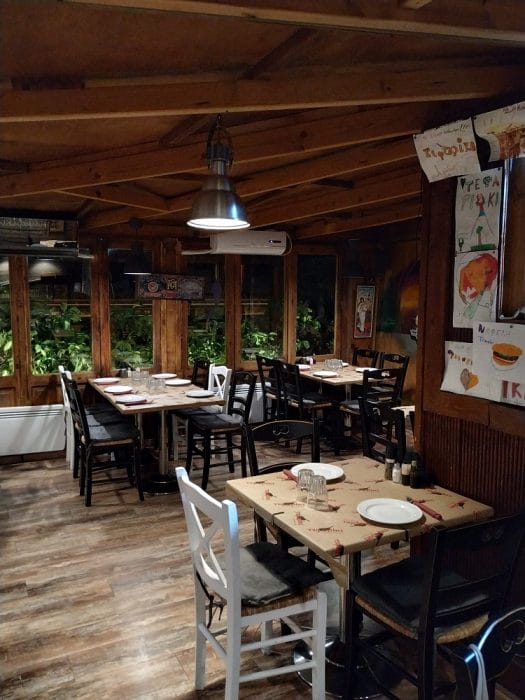 The menu changes twice a year, summer and winter, to reflect seasonal ingredients. Lambros explains to us that they started out with Greek meat, but nowadays he only uses imported beef for the higher-end cuts – the quality of Greek meat was not uniform, one day it was tender and tasty, the other tough and bland. However, skirt steak (a real treat, when it is available), pork, chicken and sausages are all Greek.
The menu changes twice a year, summer and winter, to reflect seasonal ingredients. Lambros explains to us that they started out with Greek meat, but nowadays he only uses imported beef for the higher-end cuts – the quality of Greek meat was not uniform, one day it was tender and tasty, the other tough and bland. However, skirt steak (a real treat, when it is available), pork, chicken and sausages are all Greek.
What is interesting about Tephariki’s menu is that it doesn’t include anything reminiscent of the tavernas down the road: no feta cheese, no Greek salad, no tzatziki and no lamb chops. “We needed to set ourselves apart and offer something different,” Lambros says.
All the salads are made by hand, none of the ready-to-eat stuff that is so common in most restaurants nowadays. “I even bring in a lady as extra help on the weekends, just for the salads!” he says. Lambros only has women in the kitchen, whereas most of the area’s meat eateries are dominated by male cooks. “They are cleaner and neater and this is what matters to me,” Lambros says.
The best sellers here are the biftekia, or beef patties: six (or ten) of them come served on pita bread with onions and tomatoes, very reminiscent of vintage-style souvlaki. There are many egg dishes on the menu too, something that is not so common in Greek eateries (unless they serve brunch). There are strapatsada eggs with tomatoes, eggs with sausage and pita bread, and eggs with lamb liver. We loved the classic eggs and potatoes, a typical meal of the tavernas of yore.
Service is quick, efficient and to the point, even on days when the place is full. Smoking is not permitted inside, and families are more than welcome – the big wall covered with kids’ drawings reminds you of that. Another plus is that there is no TV in sight. “We have definitely lost clients because of that, especially on the days that big football games are on. However, I find that screens are distracting and will never cave in to the pressure, although I am sure it would double my clientele on weekdays,” Lambros tells us.
But he has always gone his own way, and thank goodness for that.
Published on November 14, 2019
Related stories
October 3, 2022
BarcelonaThe quick trip to France for indulgences not found in Spain is something of a tradition among the Catalan people. During the Francoist regime, many people used to drive to France to skip the dictator’s censorship and wait in long lines in the Perpignan cinemas to see classics of erotic cinema of the time –…
January 29, 2016
LisbonUpdate: This spot is sadly no longer open. A particularly eye-catching landmark in Lisbon’s Alfama district is the Casa dos Bicos (“House of the Spikes”), a 16th-century palace – once home to the Portuguese viceroy of India, and now housing the José Saramago Foundation – that has a bizarre façade of spiked stones and eclectic…
November 17, 2022
Athens | By Katherine Whittaker
AthensTanini Agapi Mou may be one of the most ambitious wine bars in Athens’s growing wine scene. But nothing about it feels pretentious. Plants hang from the ceiling and windows, growing wildly and draping the store in green. The furniture is simple, with tables crafted by independent producers out of highly-sustainable birchwood. The music that…







































